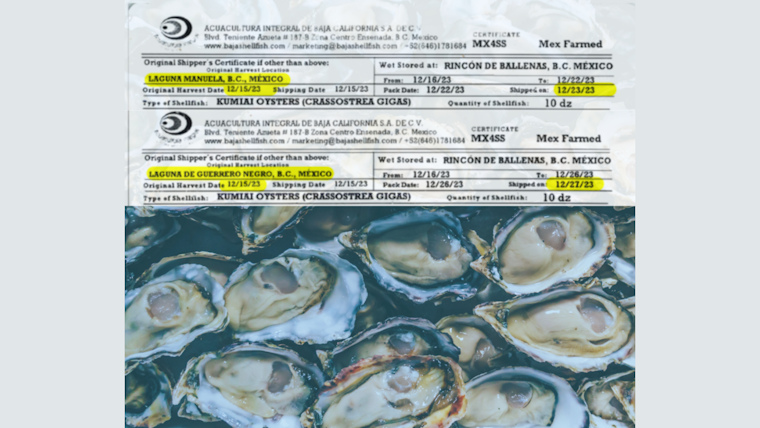
Investigations have widened as San Diego County health officials turn up the heat on a norovirus outbreak tied to oyster consumption. The number of affected individuals has spiked to 69 confirmed and probable cases. Authorities are sounding the alarm, urging everyone to ditch oysters sourced from specific locations in Mexico as the list of tainted oyster harvest locales lengthens.
Originally, the outbreak was linked to oysters harvested from Sonora, Mexico. But the situation is rapidly turning sour—officials are now cautioning against consuming oysters from additional harvesting sites. This warning extends to restaurants, advising them to, without fail, throw away any potentially infected stock. The food poisoning drama has been playing out since December 2023, with San Diego County being hit the hardest.
According to an update from the County News Center, the U.S. Food and Drug Administration (FDA) has stepped into the fray, dishing out advisories to clamp down on the spread. Entrusted with the oversight of imported oysters, the agency is cautioning about goods from not just Sonora but additionally from Laguna De Guerrero Negro and Laguna Manuela, and as of recently, Estero Morua—all located in Mexico.
With the case numbers gradually ticking up, there's a broad consensus forming around the risks of Mexican oysters. County Public Health is taking the lead, suggesting to steer clear of all oysters imported from our southern neighbor for now. "The County recommends that people ask where oysters were harvested when eating out or getting food from wholesale locations to avoid consuming oysters imported from Mexico," Dr. Ankita Kadakia, Deputy County Public Health Officer, advocated in a recent directive.
Norovirus, while often mild, can become severe, prompting dehydration, especially among the most vulnerable—the young and the elderly. Dr. Kadakia has been quick to remind those feeling ill and their close contacts to regularly wash their hands to prevent the further spread of the virus.
It's no secret that gobbling raw oysters can be a risky business. They have been the culprits in previous outbreaks of other germs, including Vibrio, Shigella, and E. coli. To join in on the offensive against the spread, consumers should contact their healthcare provider if they present signs of illness. To report illness after dining out, the County has made available a hotline at (858) 505-6814, and an email at [email protected].
Resources are available on the County's dedicated web pages for those looking to stay updated on the seafood saga and shellfish safety. There, seafood lovers can find extensive information on norovirus prevention and the best practices to keep their homes free from the virus’s grasp.

-1.webp?w=1000&h=1000&fit=crop&crop:edges)







